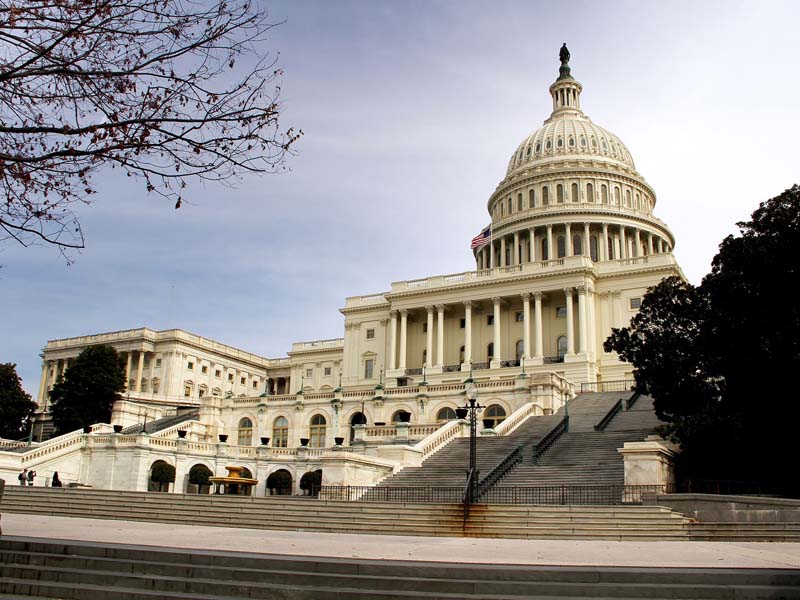Academy Seeks Medicare Relief For Primary Care
AAFP Urges Lawmakers to Fix Budget Neutrality Requirement
November 5, 2020, 4:39 pm News Staff — H.R. 8702, introduced last month, is called the “Holding Providers Harmless From Medicare Cuts During COVID-19 Act” — but it would help only certain specialties while putting primary care at a disadvantage, the Academy and five other groups warned lawmakers in an Oct. 30 letter.

Markedly better financial relief for every room in the house of medicine exists in a different bill introduced last month, the AAFP said in that letter and in separate correspondence to the sponsors of the preferred legislation.
The Academy and its co-signatories object to H.R. 8702 because it “expressly lists as excluded services from ‘hold harmless’ provisions the majority of office visits of primary and comprehensive care physicians, as well as the GPC1X add-on code that will be used for complex and prolonged office visits,” said the Oct. 30 letter.
The letter was sent to the bill’s sponsors — U.S. Reps. Ami Bera, M.D., D-Calif., and Larry Bucshon, M.D., R-Ind. — and 227 other House members.
Joining the AAFP’s opposition to the bill were the American Academy of Neurology, the American College of Physicians, the American Medical Society for Sports Medicine, the American Thoracic Society and the Renal Physicians Association.
The bill seeks to offset the negative impact of budget neutrality on a number of procedural specialties, but it would undermine the relativity of the Medicare physician fee schedule and leave primary and cognitive care specialties to bear the weight of the 2021 MPFS’ decreased conversion factor. The boost for evaluation and management codes finalized in the 2020 MPFS corrects a longstanding payment imbalance for primary care and reflects years of Academy advocacy. But the change — particularly the new GPC1X code, which acknowledges the increasing complexity of primary care — has drawn fire from other specialties ahead of the 2021 fee schedule’s finalization, which is expected early next month, because budget-neutrality requirements mean that it’s accompanied by a lowering of next year’s conversion factor of more than 10%. (The conversion factor is multiplied by the relative value of each code in the fee schedule to determine the Medicare payment rate.)
Story Highlights
H.R. 8702 turns that heat back on primary care at an especially pivotal moment.
“In our view, it is wrong to exclude primary and comprehensive care physicians who are on the front lines of treating COVID-19 patients — and the millions more patients they are treating for other medical conditions — from COVID-19 relief,” the letter said. It cited a study, published in Health Affairs, indicating that primary care practices will have lost more than $67,774 per full-time physician in calendar year 2020 because of COVID-19.
The problem with the proposed 2021 MPFS is not its long-overdue correction of primary care E/M payment, the organizations wrote. Rather, their concern is that the budget-neutrality requirement — which Congress has the power to waive — will exacerbate the financial struggles that physician practices are already facing due to the pandemic.
Though H.R. 8702 would mandate that Medicare payment for non-E/M services remains constant for the next two years, it would subject some E/M services in 2021 to the lower conversion factor — limiting the primary care raise and leaving E/M services vulnerable to a reduction in 2022.
“In essence, the burden of budget neutrality over the next two years is placed solely on primary and cognitive care,” the said the Academy and its co-signatories.
In fact, H.R. 8702 “is not fair to all services and specialties, distorts the relativity of the MPFS by undermining the revaluation of services determined by the usual regulatory process with public and physician comment, and disadvantages primary and comprehensive care services compared to other services by excluding them from COVID-19 relief,” the letter said.
The more equitable and effective legislative maneuver, the letter said, would be “a one-time, one-year waiver of budget neutrality for all services with relative value units or base values as finalized in the 2021 MPFS.”
H.R. 8505 — for which the Academy voiced strong support in a Nov. 3 letter and which the Oct. 30 letter expressly endorsed as an alternative to H.R. 8702 — would do just that. It proposes applying unused money from HHS’ Provider Relief Fund to pay for a one-year waiver of the budget-neutrality requirement.
“It is critical that temporary relief enacted by Congress include support for primary care practices and does not disadvantage them compared to other specialties. H.R. 8505 achieves the goal of providing equitable relief,” the Academy told the bill’s sponsors, Reps. Michael Burgess, M.D., R-Texas, and Bobby Rush, D-Ill. The earlier letter noted that H.R. 8505, “also recognizes that physicians across all specialties have experienced substantial revenue losses and increased expenses due to COVID-19.”
The Nov. 3 letter was signed by AAFP Board Chair Gary LeRoy, M.D., of Dayton, Ohio.
In a new Speak Out campaign, the Academy is calling on members to let their representatives know that only one of these two bills is fair and beneficial and that passage of H.R. 8505 is “critical to ensuring we can continue to care for our patients during this crisis and beyond.”